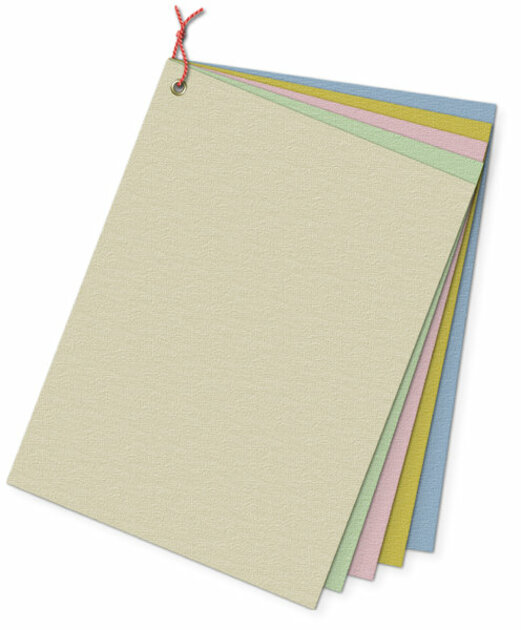
Vaiyageid Moshe: D’vorim sh’mosheichin libo shel adom k’aggodah.
V’ika d'omrei: b’techiloh peireish matan s’choroh, dichsiv: vayeshev Moshe, d’vorim sh’meshivin da'to shel odom, ul’vasof peireish on’shoh, dichsiv: vaiyageid Moshe — devorim sh’koshin l’adom k’gidin. (Shabbos 87a)
Kegidin: Yerek mar, a bitter vegetable. (Rashi, ibid)
This Gemara tells us that the term vaiyageid, which is from the same root as the word haggadah, can mean one of two things: to draw someone close or to embitter, like a bitter vegetable.
The way that parents present the haggadah on Seder night can make the difference between an experience that draws children closer to them and to Yiddishkeit or, chas v’shalom, the alternative.
Before we talk about how to approach this unusual night, let me once again tell you about a different unusual knight.
As Pesach approaches, I am reminded of the perhaps apocryphal but nonetheless amusing story of the knighting ceremony for Sir Moshe Montefiore. When Queen Victoria touched the sword to his shoulder and dubbed him “Sir Moshe,” the expected Latin response escaped his mind. Panic stricken, he blurted out, “mah nishtana ha-layla hazeh mikal ha-lailos.” The puzzled Queen turned to her aide and asked, “why is this knight different from all the others?”
Perhaps we shouldn’t be surprised that Queen Victoria translated the Hebrew sentence the way that she did. Many of us were taught to translate it this way. However, I’m not sure that this is an accurate translation. I am sure it can be a problematic one.
Mah tovu oholecha Yaakov clearly does not mean, “why are your tents good, Yaakov?” In fact, it isn’t a question at all, it’s a statement of observation: how wonderful are your tents, Yaakov! It would appear more accurate, therefore, to translate the famous expression “mah nishtana” as a statement of observation: How different this night is from all other nights!
The following so-called “four questions” are actually the observations that explain the exclamation, “how different this night is!” In fact, the Hebrew/Yiddish term for these examples is not “the 4 shailos,” or “questions.” They are called “the 4 kashyos,” four things that are unusual or difficult to understand.
That’s why I believe the translation “why is this night different” is not as accurate. But even if it isn’t as accurate, what’s the problem? Is there any harm in translating it this way?
On all other nights, maybe not. But the Pesach seder is the quintessential chinuch opportunity and it’s important that we do it right. Everything about the Pesach seder informs parents how to teach our children. Let’s look at three fundamental lessons that the Seder teaches us about how to teach our children.
First, teach by example. The Rambam tells us that we have to show ourselves that we were freed from bondage. We do this by all of the behaviors we engage in the course of the Seder, and we invite our children to join us in what we are doing, rather than telling them what they should do.
Next, make sure that expectations are concrete, and celebrate success. We drink specific amounts of wine, and eat specific amounts of matzo and maror. Then, knowing that we have succeeded because we knew what the expectations were, we celebrate our success with chasal siddur pesach.
And thirdly, when things are different, invite children to express their surprise rather than hoping they won’t notice. Teach children how to express themselves appropriately when they don’t understand something.
Which brings us to the problem with the word “why.” When a child looks at the anomalies of the Seder night and says, “why are you doing all this?” the haggadah labels him the rasha. That’s because the word “why” demands explanation and justification and puts the recipient on the defensive. While it is clearly inappropriate for a child to put a parent on the defensive, it is seldom helpful for a parent to put a child on the defensive. When instead, a child expresses puzzlement at the unusual foods and format of the Seder, and asks for additional information to help him or her understand it, chinuch begins, and you teach him everything right through the laws of the afikomen.
I have described Shabbos as “Childrens’ Day” based on the expression la’asos es haShabbos l’dorosom, to make Shabbos wonderful so that it will be cherished by your children and theirs, l’dorosom.
The Sedorim are, for many children, the most memorable and cherished nights of the year. Think back. How much do you remember of the Chanukahs of your childhood, the Purims? The lighting of the menorah, the merrymaking and festival meal, the costumes, the gifts, the parties? I remember some of those times. But I have much clearer memories of the melodies and the closeness I felt with my family at the Seder table. From what I have read, more American Jews observe some form of the Seder than any other aspect of Yiddishkeit.
The Seder contains Magid and everyone loves a story. The entire night is Haggadah, an opportunity to draw families closer. What better way to come together than to share acknowledged success, to say to one another, Baruch HaShem, Nirzah, we did our best and we’ve given nachas to Hashem.
Rabbi Yitzchak Shmuel Ackerman is a Licensed Mental Health Counselor with specialties in marriage, dating, and parenting.
He is the author of Confident Parents, Competent Children, in Four Seconds at a Time Available at bookstores and on Amazon.
He can be reached at 718-344-6575.

 Previous
Previous

